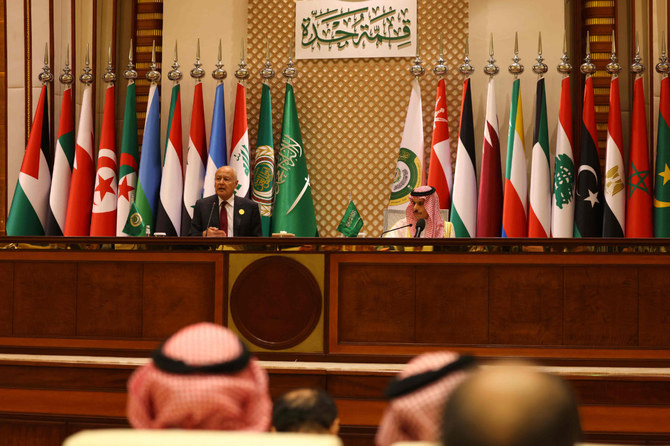
It has been four months since the Taliban took over most of Afghanistan after the US withdrawal precipitated the collapse of the Afghan government. Since then, the situation across the country has been bleak. Millions of girls are still not allowed to attend school. Millions more are facing acute food shortages. The Afghan branch of Daesh has launched numerous deadly attacks, almost daily. Senior members of Al-Qaeda, who have not set foot in Afghanistan for almost two decades, are now roaming freely.
Since capturing the presidential palace in August, the Taliban have shown utter incompetence when it comes to governing. The militants can barely divide power between the competing factions inside the movement, much less form a government that can serve and represent the diverse people of Afghanistan. Clearly, the Taliban are not capable of handling the humanitarian crisis or the deteriorating security situation facing the country.
Sadly, there are few options for the international community to help. Considering that so many senior officials are under UN sanctions, it would not make sense to normalize relations with the Taliban. The Taliban cannot be trusted to provide for the people of Afghanistan if aid was given or funds were unfrozen. Meanwhile, they lack the logistical ability and technical expertise to distribute food and other aid across the country even if it was provided.
Although there is little that the international community can do, there are some in the country determined to make Afghanistan a better place for future generations. These include the National Resistance Front of Afghanistan, led by Ahmad Massoud, son of the late Ahmad Shah Massoud, who gallantly led resistance against the Soviets and the Taliban in the 1980s and 1990s until his assassination by Al-Qaeda the day before the Sept. 11, 2001 attacks against the US.
Right now, the NRF is facing an uphill battle. Winter has arrived in Afghanistan, hindering military advancement. Panjshir, where the bulk of the NRF is located, is experiencing subzero temperatures day after day. Snowy roads and mountain passes make movement difficult, if not impossible, for both the Taliban and resistance forces.
Even so, the NRF has expanded operations to five other provinces since September. According to social media reports and official statements, the NRF has struck Taliban positions in Panjshir and neighboring provinces, such as Kapisa, Baghlan, Badakhshan and Parwan, in the past month. The group has also attacked Al-Qaeda and Daesh camps in northern Afghanistan. Right now, the main goal of the NRF is to survive the winter, consolidate its forces, gain international support and prepare for the traditional spring fighting season.
Most of the NRF’s leadership were not considered to be part of the corrupt political class that existed before the Taliban takeover in August. Many were involved in opposition politics and had been demanding reforms from successive Afghan governments for years. Because of this, many members of the group enjoy popular support inside Afghanistan. If an effective and robust opposition forms against the Taliban in the coming months, the core is likely to come from those in the NRF. That is why the group is the natural partner for the international community when it comes to offering opposition and resistance to the Taliban and other terrorist groups in Afghanistan.
The Taliban lack the ability to prevent transnational terrorists from using Afghanistan as a place to plan, launch and coordinate global attacks. It is wishful thinking to believe that the organization can be a credible counterterrorism partner. The leadership of the Taliban are intimately linked with global terror groups. On any given day, disenchanted Taliban commanders and fighters switch allegiances to Daesh, for example. The most powerful faction inside the Taliban, the Haqqani network, is closely linked to Al-Qaeda. It is simply impossible for the Taliban to break ties with terrorists because it is from these extremists groups that they get much of their perceived legitimacy.
The important lessons for policymakers is not to rule anything out or take anything in Afghanistan as a given. While the Taliban might be in control now, it is clear their grip in some areas is slipping. As winter turns to spring, resistance groups, such as the NRF, will become even more active. At this point the international community will have a choice. Option one is to remain tethered to the disastrous and murderous Taliban in the hope that the so-called moderates (who do not really exist) will prevail over the more extremist factions. Option two is to start backing a genuine resistance that can offer an optimistic future for all Afghans.
While it might seem like a long shot, this is the only responsible choice and the NRF is the only show in town. The sooner policymakers start realizing this, the sooner the shattered pieces of Afghanistan can be put back together.
Luke Coffey is director of the Douglas and Sarah Allison Center for Foreign Policy at the Heritage Foundation. Twitter: @LukeDCoffey
Disclaimer: Views expressed by writers in this section are their own and do not necessarily reflect Arab News" point-of-view












